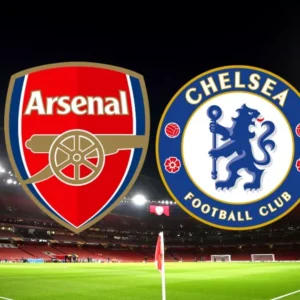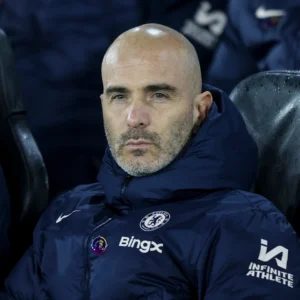
In a surprising turn of events, Joan Laporta, the president of FC Barcelona, has decisively ruled out any possibility of re-signing 18-year-old Spanish sensation Marc Guiu from Chelsea next year. This decision comes shortly after the summer transfer window where Barcelona sold Guiu to the English giants, a move that raised eyebrows among fans and analysts alike.
Transitioning from the sale, recent reports from the Spanish outlet Fichajes shed light on Barcelona’s stance. Contrary to what many might have speculated, Barcelona is not entertaining thoughts of bringing Guiu back to the Camp Nou. Instead, Laporta has firmly closed the door on any potential return, signaling a strategic shift in the club’s youth policy.
Will Marc Guiu return back to Barcelona?
However, this decision has naturally sparked a debate. While some view Laporta’s move as a strategic necessity, others see it as a missed opportunity. For instance, Guiu’s rapid ascent through Chelsea’s ranks has not gone unnoticed. His performances have started to turn heads, suggesting that Barcelona might have let go of a gem too soon.
Moreover, the financial implications of this transfer saga cannot be overlooked. Initially, selling Guiu to Chelsea was seen as a financial relief for Barcelona, already burdened with financial constraints. Yet, the potential for his resale value after further development at Chelsea could have been significant. Thus, Laporta’s decision might also reflect a broader financial strategy to manage current debts rather than future speculative gains.
Additionally, this scenario opens up discussions on the development pathways for young talents within European football. Barcelona, known for its La Masia academy, has often nurtured talents only to see them shine elsewhere. This pattern might suggest a reevaluation of how clubs like Barcelona handle their youth prospects. Are they prepared to let go of talents for immediate financial gain, or should they hold onto them, banking on long-term success?
More:
Furthermore, Chelsea’s role in this narrative cannot be understated. Their aggressive approach in the transfer market, especially for young talents, indicates a robust strategy to rebuild their squad for future dominance. By bringing in players like Guiu, Chelsea not only strengthens its squad but also potentially disrupts the plans of competitor clubs, like Barcelona.
Joan Laporta’s decision to not pursue Marc Guiu’s return to Barcelona marks a pivotal moment in the club’s transfer strategy. It reflects a pragmatic approach to club management, focusing on immediate financial stability over long-term speculative gains. This move, while controversial, sets a precedent for how football clubs might navigate the complex world of youth transfers in an era where financial prudence often overshadows sporting merit. As the football world watches Guiu’s career unfold at Chelsea, Barcelona’s decision will be scrutinized, offering lessons on the delicate balance between economic strategy and footballing philosophy.





